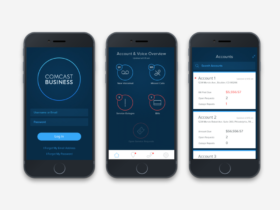The world of technology is always in a constant state of evolution, and one area that has continued to witness remarkable growth and transformation throughout the years is cloud computing. As industries across the board continue to leverage the power of the cloud, Praveen Kumar Vutukuri, a thought leader in the space with over 13 years of experience in software development and cloud computing, brings a wealth of first-hand expertise to the forefront.
With a career spanning over a decade, Mr. Vutukuri has worked on a multitude of projects, honing his skills in designing, developing, and maintaining web, Windows, and client/server applications. His comprehensive skill set encompasses mastery in the Software Development Life Cycle (SDLC), expertise in Object-Oriented Design (OOD) and Object-Oriented Programming (OOP), and modern web development frameworks like AngularJS and Bootstrap, as well as cloud technologies, including .NET Core with Web API and Angular applications.
Before delving into predictions and strategies, Mr. Vutukuri emphasized that cloud computing has become the cornerstone of success for leading companies in diverse sectors. He highlights the influence of cloud technology on the e-commerce sector, where it has redefined the way customers shop. From ordering products using smart devices to enjoying competitive pricing and streamlined shipping and delivery services, cloud computing has played a pivotal role in enhancing customer satisfaction and driving growth in e-commerce.
Drawing from his own experiences in the healthcare industry, particularly in Healthcare Claim Processing or Electronic Data Interchange (EDI), Mr. Vutukuri shared that EDI is a secure way of transmitting data between healthcare practices, insurance agencies, government entities like Medicare, clearing houses, and patients. Quite notably, in one instance, Vutukuri successfully processed more than 800 transactions for Claim Clearance and Processing, using Workflows. He notes the increasing competitiveness in adopting EDI technology. However, he also underscored the importance of central governance and data security in this context. Healthcare organizations must navigate challenges related to reliability, consistency, and data security, which often necessitate substantial investments in research and technology.
In the realm of EDI processing, Mr. Vutukuri foresees a significant role for cloud computing in the coming years. He anticipates the emergence of sophisticated cloud computing tools, equipped with extensive knowledge of HIPAA transactions, capable of analyzing transactional data in claims comprehensively. This tool would identify missing data points, validate information, and provide businesses with actionable insights.
Mr. Vutukuri mentioned that by utilizing such cloud computing tools, companies can reduce costs associated with manual data processing and validation, while also ensuring the security and consistency of their data. Additionally, this approach allows for global accessibility and long-term storage of claim history, enhancing the robustness of the entire process.
In addition to this, Mr. Vutukuri also gave insights into the future of cloud computing. He said, “Quantum Computing is poised to integrate deeply with cloud services.” He also envisions that AI will drive enhanced security measures that will safeguard cloud-stored data. And the expansion of edge computing to process IoT data closer to its source and the dominance of serverless computing for its scalability and cost-efficiency. He believes that organizations would increasingly adopt hybrid and multi-cloud strategies for flexibility and improved disaster recovery capabilities. Mr. Vutukuri concluded by saying that Cloud computing is not just about the present but also about the exciting developments on the horizon, where adaptability and innovation will be the keys to success in this dynamic environment.










Leave a Reply